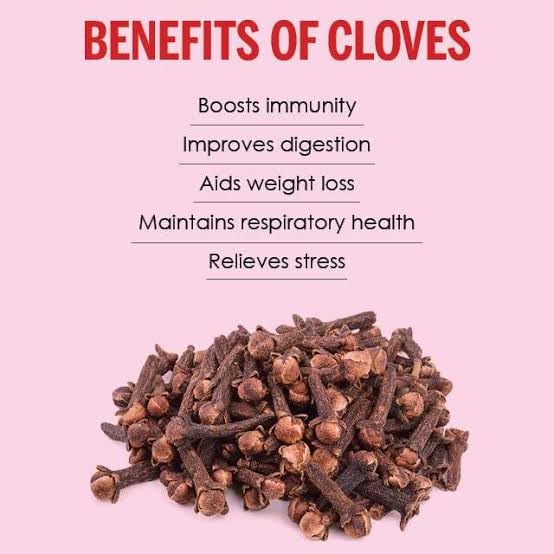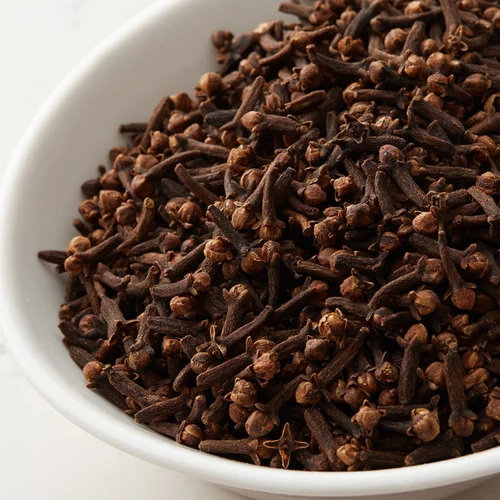Introduction

Clove is a highly aromatic spice derived from the dried flower buds of the Syzygium aromaticum tree, native to Indonesia. Known for its warm, sweet, and slightly pungent flavor, clove has been a staple in culinary, medicinal, and aromatic applications for centuries. Rich in antioxidants, vitamins, and minerals, clove is celebrated for its numerous health benefits, ranging from improved digestion to pain relief. However, like many potent natural remedies, it also carries potential side effects when consumed in excess or applied improperly. This guide delves into clove’s remarkable health benefits and its associated risks, offering a balanced perspective on this versatile spice.
Forms
Clove is available in various forms, each suited to different culinary, medicinal, and practical uses. Below are the common forms of clove:
Whole Cloves:
Dried flower buds used in cooking, beverages, and aromatherapy.
Ground Clove (Powder):
Finely powdered form used in baking, curries, and herbal remedies.
Clove Oil:
Highly concentrated essential oil used in dental care and topical applications.
Clove Tea:
Brewed beverage known for digestive and immune-support benefits.

Clove Capsules or Supplements:
Pre-measured clove powder or oil in capsule form for health benefits.
Clove Extracts:
Concentrated clove solutions used in foods, cosmetics, and medicines.
Clove Honey:
Honey infused with clove, offering a sweet remedy for colds and sore throats.
Clove-Based Products:
Includes infused toothpaste, mouthwash, and skincare items for antimicrobial effects.
Health Benefits of Clove
Clove offers a wide array of health benefits due to its rich nutrient profile and active compounds, particularly eugenol. Here are some notable benefits:
Promotes Digestive Health:
Stimulates the secretion of digestive enzymes and alleviates issues like bloating, gas, and indigestion.

Relieves Toothaches and Oral Problems:
Eugenol in clove provides pain relief and antimicrobial protection for oral health.
Boosts Immunity:
Its antimicrobial and anti-inflammatory properties enhance the body’s ability to fight infections.
Improves Respiratory Health:
Clove’s expectorant properties help clear mucus and ease symptoms of colds, coughs, and bronchitis.
Supports Liver Health:
Antioxidants in clove help protect the liver from oxidative damage and enhance its function.
Helps Regulate Blood Sugar:
Clove may improve insulin sensitivity and help manage blood sugar levels.
Reduces Inflammation and Pain:
Contains anti-inflammatory properties that alleviate arthritis pain and other inflammatory conditions.
Enhances Skin Health:
Clove oil’s antimicrobial properties help treat acne and other skin infections.
Supports Bone Health:
Clove contains manganese, a mineral crucial for bone density and strength.
Side Effects of Clove
While clove offers numerous health benefits, excessive use or improper application can lead to certain side effects:

- Allergic reactions
- Mouth and throat irritation
- Liver damage
- Blood thinning
- Low blood sugar
- Gastrointestinal discomfort
- Risk of toxicity (from excessive clove oil consumption)
- Respiratory issues (when inhaled in large amounts)
- Interaction with medications (e.g., anticoagulants, diabetes medications)
- Potential harm to teeth (with prolonged use of clove oil in high concentrations)
This Article is for Basic Information. Contact a professional doctor before using it.
HAKEEM KARAMAT ULLAH
+923090560000




